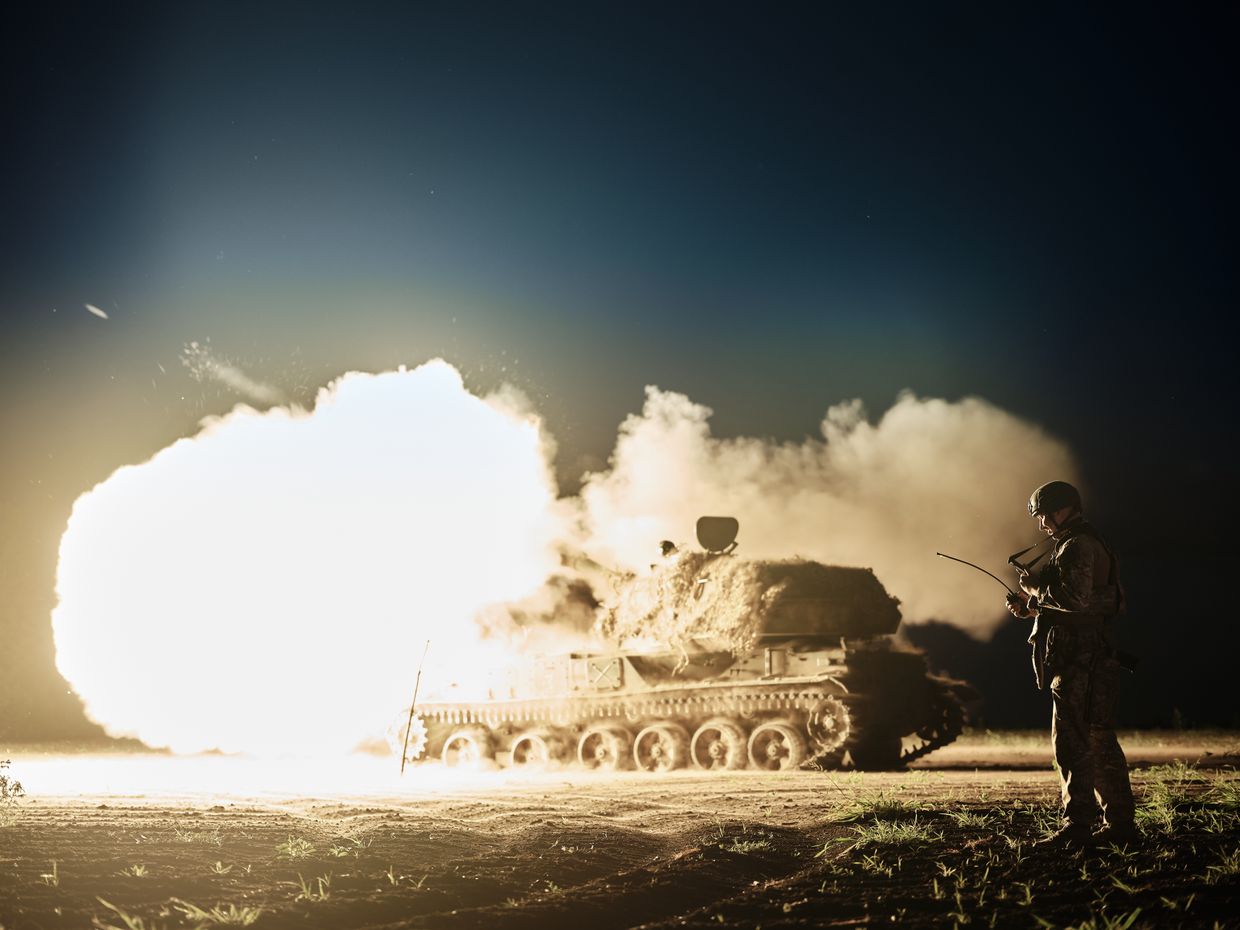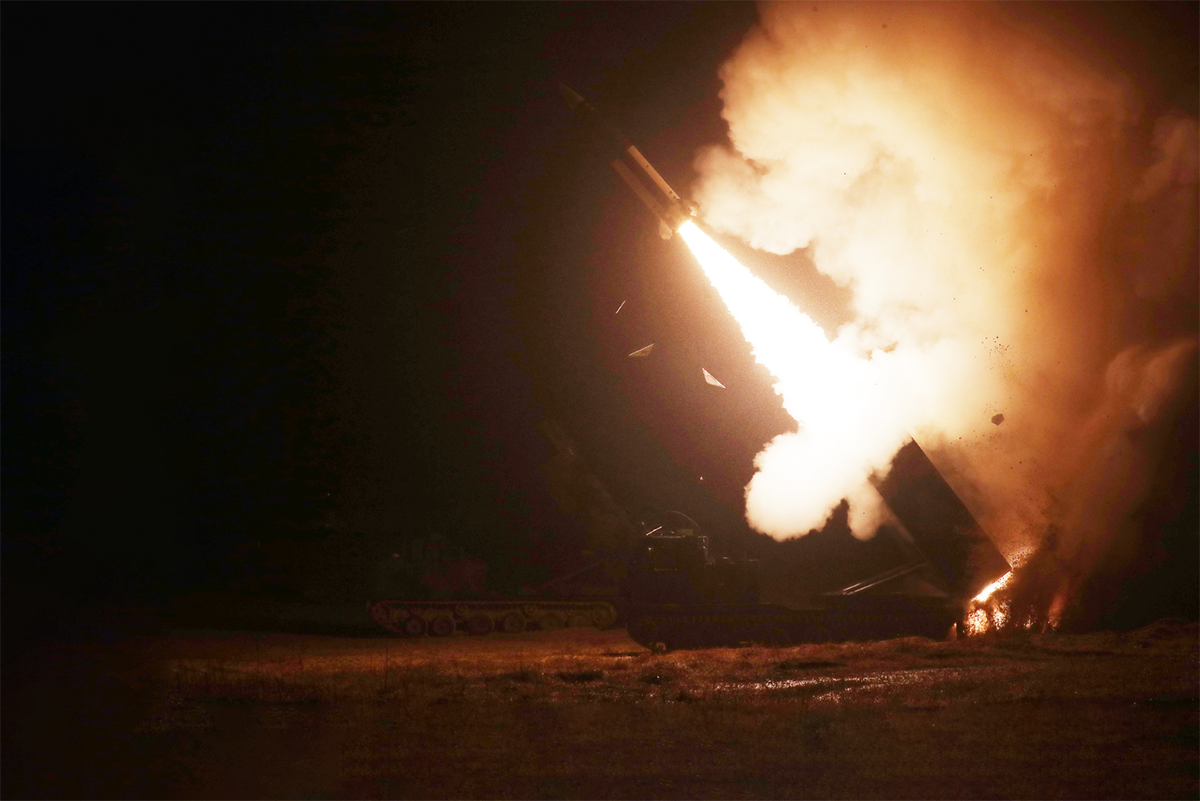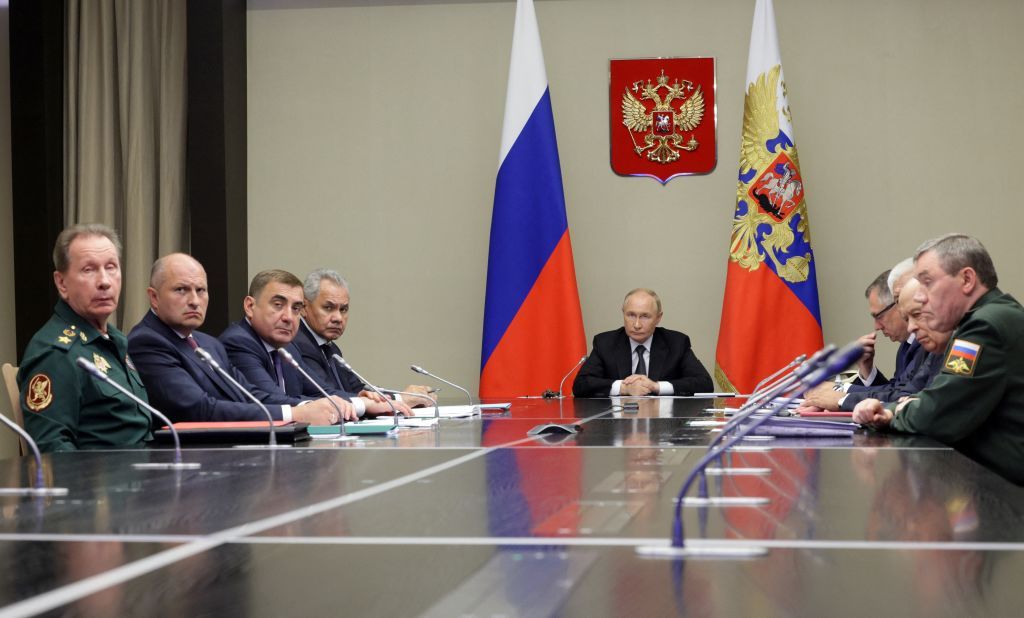Kursk incursion deals blow to Putin’s prestige marking first ground invasion of Russia since World War II
Ukraine’s surprise offensive delivers biggest political blow to Vladimir Putin since Wagner Group rebellion

Vladimir Putin leaves the scene during the opening ceremony of the last phase of the Moscow-Saint Petersburg motorway on July 16, 2024, in Tver, Russia. (Contributor/Getty Images)
The 1,000 square kilometers Ukraine says it controls in Russia's Kursk Oblast amounts to a tiny share of Russia’s massive terrain. Yet, politically, the surprise Ukrainian move poses one of the biggest challenges to Russian President Vladimir Putin’s grip on power.
The stunning operation, conducted by Ukraine’s Armed Forces, amounts to the first ground invasion by a foreign power of Russian territory since World War II.
It also appears to be the most severe blow for the Kremlin since warlord Yevgeny Prigozhin's insurrection in June 2023.
"It has caused significant damage to Putin's prestige,” Russian political analyst Dmitry Oreshkin told the Kyiv Independent.
The Ukrainian operation in Kursk Oblast comes as Kyiv continues to relentlessly conduct long-range air strikes on Russian military airfields, oil refineries, and ammunition depots in Russia and occupied parts of Ukraine.

The Kremlin's setback in Kursk Oblast resembles Moscow’s withdrawal from parts of Kharkiv and Kherson oblasts in 2022, when Putin had to mobilize conscripts to hold the line.
Since Russia lacked troops to repel the Ukrainian incursion in Kursk Oblast, the likelihood of a second mobilization is increasing, analysts say. Putin has postponed conscription due to risks of potential domestic instability caused by an apparent decrease in the number of people willing to fight in Ukraine.
At the same time, the Kremlin is facing a backlash from pro-war hawks, who believe Russia's leadership has failed to protect the border and created a military system that’s unable to properly wage the war.
The Kursk operation may also weaken the West's fears of escalating the war since the ground invasion of Russian territory did not lead to any dramatic consequences like a nuclear war or a conflict with NATO. The nuclear saber rattling, used occasionally by the Kremlin, disappeared altogether as Ukrainian troops, according to President Volodymyr Zelensky, took control of 74 Russian settlements.
Scale of the problem
Ukraine launched its incursion into Kursk Oblast on Aug. 6.
Although Russian volunteers fighting for Ukraine had previously conducted small-scale raids into Bryansk, Belgorod, and Kursk oblasts, the ongoing operation in Kursk Oblast is the first significant ground invasion of Russian territory by a foreign power since the last world war.
This time, the incursion is being carried out directly by the Ukrainian army, not by a small number of Russian volunteers under Ukrainian control.
Ukraine’s Commander-in-Chief Oleksandr Syrskyi said on Aug. 12 that Ukrainian troops controlled about 1,000 square kilometers of Russian territory in Kursk Oblast, while Zelensky said the next day that Ukraine holds 74 settlements.
Alexei Smirnov, acting governor of Kursk Oblast, said on Aug. 12 that Ukrainian forces had pushed 12 kilometers (7.5 miles) into his region across a 40-kilometer (25-mile) front and currently control 28 Russian settlements.
Smirnov also said that 121,000 people had been evacuated or left Kursk Oblast on their own. The authorities are planning to evacuate 180,000 people from the region, he added.
Residents of the region have recorded videos saying that the authorities had not helped them to evacuate and called on Putin to interfere.
Some 11,000 residents of a nearby district in Russia's Belgorod Oblast have also left their homes, Governor Vyacheslav Gladkov said on Aug. 13.
Putin’s prestige
Oreshkin says that since the start of the full-scale invasion, the Kremlin was trying to spread the message that Russia is “invincible and stronger than everyone," but this idea has been dealt a major blow.
"It's clear that things aren't going as well for Putin as he's trying to present it," Oreshkin said.
"When he started the ‘special military operation,’ he thought it would be fast and painless and would bring fame. It has turned out to be lengthy, bloody and hopeless," Oreshkin added.
A political analyst based in Russia told the Kyiv Independent that Ukraine's control of Russian territory is a "very sensitive issue" for Putin, who "took it very hard." The analyst spoke on condition of anonymity due to fear of reprisals from state authorities.
He thinks the Kursk incursion will not have any major domestic political consequences for Russia. Still, Putin will likely have to send significant reserves to the region to offset the blow to his reputation, he added.
Meanwhile, state propaganda is downplaying the Kursk incursion and trying to minimize the damage to the Kremlin's prestige, Oreshkin said.

He added that the Kremlin had decided to block the YouTube video hosting service and the Signal messaging app to crack down on alternative sources of information competing with state propaganda.
Putin's propaganda machine appears to be at least partially effective in keeping the population inert and apathetic.
Russian political analyst Andrei Kolesnikov argued that "the majority of the population is distanced from the war, and their attitude towards the Kursk (incursion) may be the same as towards (Ukrainian attacks on) Belgorod."
"These events are unlikely to have a fundamental impact on attitudes towards Putin at this point," he said. "However, it's too early to draw conclusions – there have been no surveys or focus groups yet."
Destabilization?
Speculation is rife on whether the Kursk operation will destabilize the political situation in Russia.
Putin himself said on Aug. 13 that "the enemy will keep trying to destabilize the situation in the border zone in order to destabilize the domestic political situation in our country."
“Russia has long been in a situation where anything can cause destabilization in an unpredictable way,” Russian political analyst Georgy Satarov told the Kyiv Independent.
Meanwhile, the Kremlin has faced a backlash from the most hawkish and imperialist part of the population – pro-war bloggers.
They have criticized Russia's leadership for failing to prepare for the Ukrainian operation and have fueled a panic mood similar to that during Russia's withdrawal from parts of Kharkiv and Kherson oblasts in 2022.
Pro-war blogger Roman Alyokhin said on Telegram that he "just couldn’t believe what was happening" when he found out about the Ukrainian incursion.
"I thought that all this was just a series of mistakes that would be quickly corrected," he said. "But after the speech by the Chief of the General Staff (Valery Gerasimov), I became convinced that these are no longer just mistakes.... It reminds me of the series of lies about Kherson and Izium (in Kharkiv Oblast).”
Another pro-war propagandist, Yury Podolyaka, was also furious.
"How did it happen that after two and a half years, a full-fledged defensive line was not created in the Kursk border area?" he wrote on Telegram. "Doesn’t anyone question why everything is like this? Maybe it’s time to change something in our usual system, where ‘everything seems to be fine’ – at least that’s what they say on TV, but in reality, it’s not so great, to put it mildly."
While Russia's hawks are unhappy with the Kremlin's blunders during the Kursk incursion, another part of the population is increasingly frustrated with the war itself.
One of Russia's wealthiest tycoons, Oleg Deripaska, called for an unconditional ceasefire in an Aug. 8 interview with Nikkei and said Russia's war against Ukraine was "mad."
According to a survey published by Russian pollster Levada Center on Aug. 8, 58% of the respondents supported starting peace talks with Ukraine, and 34% were in favor of continuing the war.
However, the Levada Center also said that 75% of those polled supported the war, and 17% were against it. Although Levada is seen as independent from the Kremlin, its polls have been questioned due to alleged distortions caused by respondents' fear of the authorities that have been actively persecuting those who oppose the country’s war against Ukraine.

Red lines
Outside of Russia, the ongoing incursion may have an even more dramatic effect.
As things stand, the offensive weakened the West's fears that attacks on Russian territory with the use of Western arms could lead to an escalation. Russia has repeatedly threatened to use nuclear weapons or to attack NATO territory if "red lines" were crossed, but the threats have failed to materialize.
"It's become clear that talk of red lines is nonsense," Oreshkin said. "This is important for the West's position."
The political analyst currently based in Russia also said that the Kursk operation would have "consequences in the West" because "the West will be persuaded once again that the Kremlin's red lines are fake."
The Kursk incursion has already drawn praise from some Western politicians, including top members of the Republican Party.
Visiting Kyiv, U.S. Republican Senator Lindsey Graham on Aug. 12 called the Kursk operation "brilliant," "bold," and "beautiful."

"Give them weapons they need to win the war they can’t afford to lose," Graham said following a meeting with Zelensky in Kyiv.
Meanwhile, the U.S. National Security Council spokesperson John Kirby told reporters on Aug. 12 that Putin should "just get the hell out of Ukraine" if he is worried about the Ukrainian incursion into Kursk Oblast.
Russian independent observers now add that Ukraine's control of part of Kursk Oblast could be used as a bargaining chip in potential peace talks.
Putin said in June that, as a condition for peace negotiations, Ukrainian troops must leave the country’s Donetsk, Luhansk, Kherson, and Zaporizhzhia oblasts. He added that Ukraine must recognize Russia's illegal annexation of those regions and abandon any ambition to join NATO.
"Now, this sounds hollow," Oreshkin said.
Long-term prospects
Despite all the upsides of the Kursk operation for Ukraine, a lot depends on whether it continues for a long time.
"The impact of the Ukrainian operation in Kursk Oblast on the political situation in Russia and on Putin's image will depend on how long it lasts, how actively it develops, and what its successes will be," Russian columnist Sergei Parkhomenko told the Kyiv Independent.
"So far, it has been going on for a very short time and has not had a significant impact beyond Kursk Oblast itself and two adjacent areas... For now, the scale is insufficient for serious consequences," he added.
Parkhomenko and Oreshkin said that serious political decisions like full-blown mobilization that risks a public backlash are only possible if the operation is long-lasting.
"(Additional forced mobilization) is possible if it lasts for months," Oreshkin said. "But if Ukrainian forces are pushed out soon, there will be no need to carry out a mobilization."
The analyst based in Russia said that mobilization is not highly likely, but the possibility of mobilization is increasing due to the Kursk operation.
"If it happens, the second mobilization will be harsher than the first because all those who were easy to mobilize have already been drafted," he said. "And since people don't want to serve in the army, the authorities will likely close the border."

















